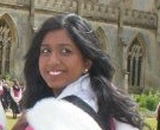 The last few weeks have been life-changing for thousands of final year medical students, present company included. Final exams themselves have been a far off concept for many of us since the very beginning of our medical student lives—we have been perpetually aware of them, but they always seemed to happen to someone else. Even at the beginning of my final year, when one would (reasonably) expect these dreaded exams to become more of a reality, in my mind at least, they remained more a story of fiction.
The last few weeks have been life-changing for thousands of final year medical students, present company included. Final exams themselves have been a far off concept for many of us since the very beginning of our medical student lives—we have been perpetually aware of them, but they always seemed to happen to someone else. Even at the beginning of my final year, when one would (reasonably) expect these dreaded exams to become more of a reality, in my mind at least, they remained more a story of fiction.
Big Ben rang in the New Year and, as if a bolt of lightning struck, I came down to earth with a thud, realising the true expanse of knowledge that I apparently had to hold in order to pass my exams.
Months of book work and pestering of patients with signs on wards ensued in what can only be described as a frenzy. The gravitas of exams became ever-clearer with each knowing nod and glance from senior doctors. Soon, each day became one last opportunity to pick up a murmur or polyphonic wheeze. Patients with dextracardia and palpable splenomegaly were fawned upon, and God forbid some poor unsuspecting patient with a cranial nerve palsy happened to find themselves on a ward with a medical student.
Soon enough, May rolled round the corner and they had arrived. One phrase that I found repeated time and again amongst my peers was, “well, if I don’t know it by now…” Truer words were never spoken.
Two weeks ago, my friends and I found out that we had passed finals. This news was followed by an immediate wave of relief and joy. Passed! An end to 6 years of medical school and the opportunity to finally have a job and stand on my own two feet. However, these positives were rapidly superseded by fear, doubt, and worry. What I now realise is that passing finals is actually far more than just completing a set of exams and leaving student life behind. They ascertain that you possess sufficient knowledge to be bestowed with the revered title of doctor and given the responsibility of one of the most precious things on this earth—human life. People will trust us with their most personal secrets, thoughts, and fears. It is sacred. Precious.
Before my graduation ceremony, I tried to remember some of the things I thought and said during my medical school interviews. In my naivety, my response to the standard “why do you want to be a doctor?” question was essentially “I want to help people and I really enjoy science.”
Perhaps I am being facetious—I did consider the job when I applied, and then later during the course. With every clinical attachment, I would be following the junior doctors, taking on some of their more tedious jobs, doing blood rounds, popping in cannulas, and filling in the odd TTO. On a good day, I might even write in the notes during a ward round. But the actual job proper was always far off, almost mythical, and certainly considered with the caveat of “pending finals”—perhaps the most overused two word phrase of my existence so far.
My one saving grace is the nationwide shadowing week, or “Preparing for Practice” course. I do fervently hope that during the ten days when we are familiarising ourselves with our new lives and trying to hone our fledgling doctoring “skills” that the huge transition from student to doctor is made just a little easier. I mean, if everyone else has managed it in the past, it must be possible.
So, to conclude my first blog post, best of luck to all the new doctors of 2012, and a small plea to our future bosses: please be gentle with us.
Anna Allan recently qualified as a doctor. She graduated from Gonville and Caius College, University of Cambridge in June 2012. She begins her Foundation Year rotation in the North Central Thames deanery.
